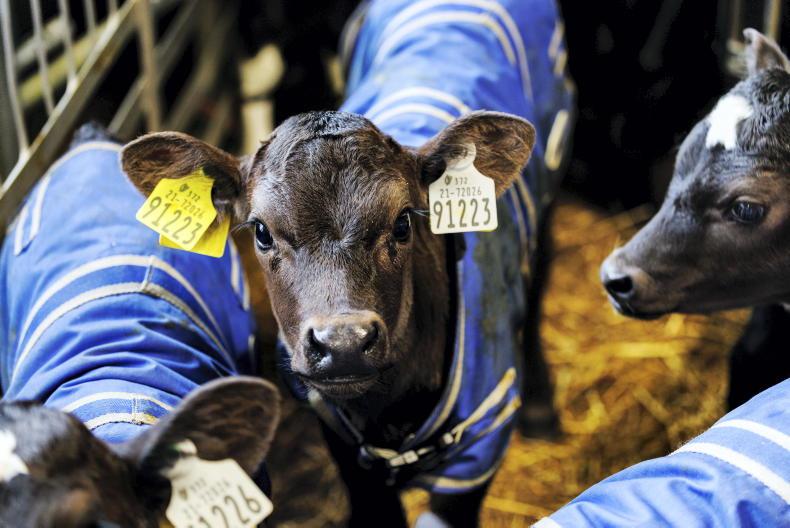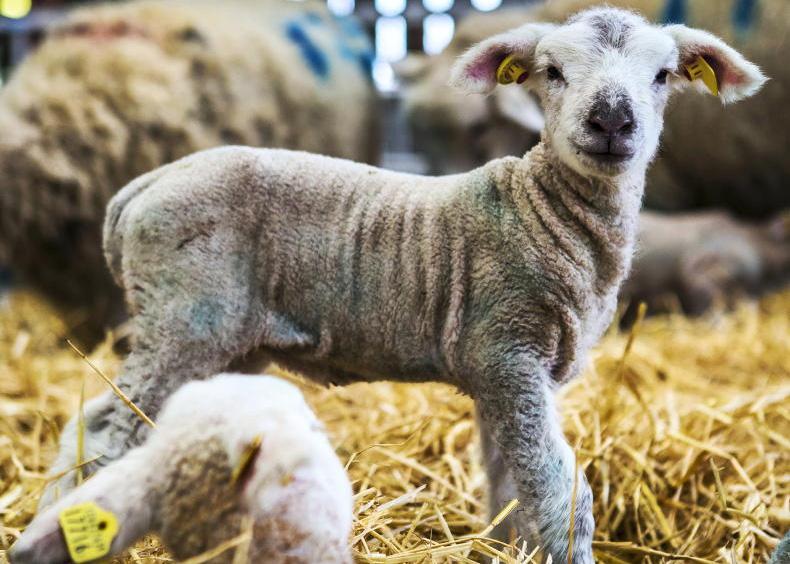We all want to look and feel our best and can do so with the clothes and accessories that we wear. However, we often underestimate how nutrition can play a role and how healthy hair, skin and nails can be the best accessory of all.
What to include: Good-quality protein to help the body make collagen and keratin that form the structure of skin, hair and nails.
Sources: Animal-based sources include dairy products, meat, fish and poultry. Plant sources include rice, soy, peas, beans and lentils, nuts and seeds. Collagen is also available in supplement form.Vitamin A and Beta Carotene: They help to make an oil called sebum, which can help to add moisture to hair and hair follicles. It also helps to protect the skin by interrupting the process that breaks down collagen.
Sources: Liver, oily fish, eggs, products fortified with Vitamin A, carrots, broccoli, spinach, squash, red and yellow peppers.Vitamin C: Your body needs Vitamin C to regulate the production of collagen. It’s also a powerful antioxidant, protecting your body from free radicals and is essential for iron absorption.
Sources: Citrus fruits, strawberry, papaya, mango, tomatoes, green leafy vegetables, peppers, strawberries and broccoli.Biotin: One of the B vitamins, it increases the elasticity and thickness of your hair, making it fuller, while also increasing nail health and growth. Deficiencies in biotin can result in hair loss, thinning hair and dry/scaly and brittle nails.
Sources: Eggs, meat, nuts and liver.Vitamin E: This antioxidant and anti-inflammatory can also absorb the energy from UV light, which damages skin and results in aging.
Sources: Plant oils, peanut butter, fortified breakfast cereals, whole-grain products, seeds and nuts (especially hazelnuts and almonds).Iron: Essential for carrying oxygen to our cells. It prevents hair loss and keeps your skin healthy and glowing. Please only take an iron supplement if you know you have low iron levels.
Sources: Red meat, spinach, lentils - also available in supplement form.Selenium: Promotes skin quality and elasticity and a natural antioxidant protecting the skin from sun damage and toxins. It also helps to regulate thyroid function, which can play a major role in maintaining healthy hair, skin and nails.
Sources: Brazil nuts, tuna, oysters, pork, beef, chicken, tofu, whole wheat pasta, prawns and mushrooms.Zinc: Can help protect the skin against sun damage. It also has antimicrobial effects, which means that zinc can help treat bacterial skin conditions such as bacterial acne.
Sources: meat, eggs, seafood, liver, milk, and wheat.Omega-3 Fatty Acids: Helps your skin stay hydrated, firm and flexible by maintaining your cell membranes. They are also natural anti-inflammatories. They help to protect skin from sun damage and improve conditions such as acne and eczema by reducing inflammation.
Sources: Oily fish (salmon, sardines, mackerel), flaxseed, chia seeds, walnuts and avocados.MSM: Often referred to as a beauty mineral because it stimulates the production of collagen and keratin, which results in a fuller head of hair, strong nails and a radiant skin.
Sources: Fresh vegetables, meat, and dairy products.Horsetail extract: It contains minerals including calcium, iron, manganese, silica and antioxidants. With silica being a core component of our hair and skin, it’s also antibacterial and anti-inflammatory, helping to strengthen the structure and texture of our hair, skin and nails.
Sources: Can be found in supplement form in many health stores and pharmacies. Raw cocoa: A potent antioxidant, it provides protection against environmental stressors. It also helps to improve blood circulation and the absorption of nutrients, resulting in healthier hair, skin and nails.
- Sources: Raw cocoa nibs or powder can be purchased in most health stores and some supermarkets.
Hydration: Hydration is key for the appearance of healthy and supple skin. Tip - aim for a minimum of 1.5-2l of water per day and your skin will reap the benefits.
Sugar
Not only can a diet high in sugar increase inflammation in the body, but it also results in increased insulin levels. Insulin has been specifically shown to elicit a hormonal response that increases sebum production, which can worsen acne.
Avoid: Added sugar, sweets, biscuits, fizzy drinks and white carbohydrates.
Processed food
Contains artificial and processed ingredients that are hard for your body to process, as well as providing no nutritional value. The more ingredients listed on the package, the more processed it’s likely to be.
Alcohol
Excessive alcohol consumption can put pressure on the liver, resulting in skin and eye discolouration and a dull complexion. It also leads to dehydration, which can cause dry hair and skin and wrinkles appearing more prominent.
Laurann O’Reilly is a qualified nutritionist and farmer’s daughter from Tipperary, with a BSc in Human Nutrition from the University of Nottingham and a Masters in Public Health Nutrition from University College Dublin. See www.nutritionbylaurann.ie or e-mail info@nutritionby.laurann.ie.

Laurann O’Reilly.
Read more
Nessa Robins' heart-healthy recipes
Cutting against the grain: Ardee butcher reopens abattoir after 13 years
We all want to look and feel our best and can do so with the clothes and accessories that we wear. However, we often underestimate how nutrition can play a role and how healthy hair, skin and nails can be the best accessory of all.
What to include: Good-quality protein to help the body make collagen and keratin that form the structure of skin, hair and nails.
Sources: Animal-based sources include dairy products, meat, fish and poultry. Plant sources include rice, soy, peas, beans and lentils, nuts and seeds. Collagen is also available in supplement form.Vitamin A and Beta Carotene: They help to make an oil called sebum, which can help to add moisture to hair and hair follicles. It also helps to protect the skin by interrupting the process that breaks down collagen.
Sources: Liver, oily fish, eggs, products fortified with Vitamin A, carrots, broccoli, spinach, squash, red and yellow peppers.Vitamin C: Your body needs Vitamin C to regulate the production of collagen. It’s also a powerful antioxidant, protecting your body from free radicals and is essential for iron absorption.
Sources: Citrus fruits, strawberry, papaya, mango, tomatoes, green leafy vegetables, peppers, strawberries and broccoli.Biotin: One of the B vitamins, it increases the elasticity and thickness of your hair, making it fuller, while also increasing nail health and growth. Deficiencies in biotin can result in hair loss, thinning hair and dry/scaly and brittle nails.
Sources: Eggs, meat, nuts and liver.Vitamin E: This antioxidant and anti-inflammatory can also absorb the energy from UV light, which damages skin and results in aging.
Sources: Plant oils, peanut butter, fortified breakfast cereals, whole-grain products, seeds and nuts (especially hazelnuts and almonds).Iron: Essential for carrying oxygen to our cells. It prevents hair loss and keeps your skin healthy and glowing. Please only take an iron supplement if you know you have low iron levels.
Sources: Red meat, spinach, lentils - also available in supplement form.Selenium: Promotes skin quality and elasticity and a natural antioxidant protecting the skin from sun damage and toxins. It also helps to regulate thyroid function, which can play a major role in maintaining healthy hair, skin and nails.
Sources: Brazil nuts, tuna, oysters, pork, beef, chicken, tofu, whole wheat pasta, prawns and mushrooms.Zinc: Can help protect the skin against sun damage. It also has antimicrobial effects, which means that zinc can help treat bacterial skin conditions such as bacterial acne.
Sources: meat, eggs, seafood, liver, milk, and wheat.Omega-3 Fatty Acids: Helps your skin stay hydrated, firm and flexible by maintaining your cell membranes. They are also natural anti-inflammatories. They help to protect skin from sun damage and improve conditions such as acne and eczema by reducing inflammation.
Sources: Oily fish (salmon, sardines, mackerel), flaxseed, chia seeds, walnuts and avocados.MSM: Often referred to as a beauty mineral because it stimulates the production of collagen and keratin, which results in a fuller head of hair, strong nails and a radiant skin.
Sources: Fresh vegetables, meat, and dairy products.Horsetail extract: It contains minerals including calcium, iron, manganese, silica and antioxidants. With silica being a core component of our hair and skin, it’s also antibacterial and anti-inflammatory, helping to strengthen the structure and texture of our hair, skin and nails.
Sources: Can be found in supplement form in many health stores and pharmacies. Raw cocoa: A potent antioxidant, it provides protection against environmental stressors. It also helps to improve blood circulation and the absorption of nutrients, resulting in healthier hair, skin and nails.
- Sources: Raw cocoa nibs or powder can be purchased in most health stores and some supermarkets.
Hydration: Hydration is key for the appearance of healthy and supple skin. Tip - aim for a minimum of 1.5-2l of water per day and your skin will reap the benefits.
Sugar
Not only can a diet high in sugar increase inflammation in the body, but it also results in increased insulin levels. Insulin has been specifically shown to elicit a hormonal response that increases sebum production, which can worsen acne.
Avoid: Added sugar, sweets, biscuits, fizzy drinks and white carbohydrates.
Processed food
Contains artificial and processed ingredients that are hard for your body to process, as well as providing no nutritional value. The more ingredients listed on the package, the more processed it’s likely to be.
Alcohol
Excessive alcohol consumption can put pressure on the liver, resulting in skin and eye discolouration and a dull complexion. It also leads to dehydration, which can cause dry hair and skin and wrinkles appearing more prominent.
Laurann O’Reilly is a qualified nutritionist and farmer’s daughter from Tipperary, with a BSc in Human Nutrition from the University of Nottingham and a Masters in Public Health Nutrition from University College Dublin. See www.nutritionbylaurann.ie or e-mail info@nutritionby.laurann.ie.

Laurann O’Reilly.
Read more
Nessa Robins' heart-healthy recipes
Cutting against the grain: Ardee butcher reopens abattoir after 13 years









SHARING OPTIONS